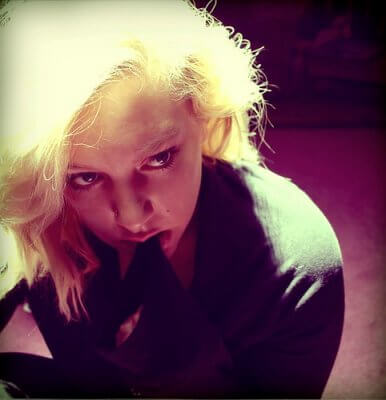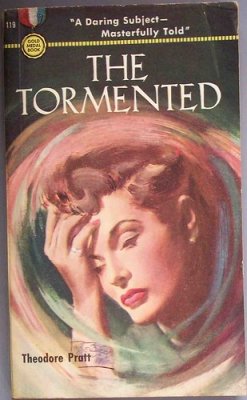Is “Pure O” Really a Thing? The Controversy Around Pure OCD
by Andrea M. Darcy
Controlled by wild, intrusive thoughts that cause you distress on a daily basis? Secretly convinced you have Pure O?
What is Pure O?
Pure O is a term made popular by the internet to describe a type of OCD that consists only of obsessive thoughts, without any of the typical compulsive behaviours.
But Pure O is not only not a clinical term — you cannot get an official diagnosis of ‘pure O’ — it also doesn’t really exist.
This is because Pure O is actually OCD, but in a good disguise! You will have compulsions as well. It’s just that they might not be as obvious as the compulsions most connected with obsessive compulsive disorder.
So a more appropriate term here might be ‘primarily obsessional OCD’.
A quick review of OCD symptoms
An obsession is a repetitive, unpleasant thought that causes you distress. This can be a visual, a voice in your head, or a directive, a thought pushing you to impulsively do something.
A compulsion is a repetitive action you feel you have to take, and you can’t stop yourself from doing it.
We all get distressing thoughts now and then. For example, in the midst of a bad breakup, we might have an intrusive thought about wanting to kill our ex. For a moment we feel terrible, then we recognise it’s just a thought and move on.
With OCD, you can’t just let go of the negative thought. Your mind attaches meaning to it, and you end up mired in anxiety and upset. To escape the distress you act out a compulsion. And on the cycle goes.

By: Derek Clark
A classic example here is if you have obsessive thoughts about germs being everywhere, waiting to make you sick. So you compulsively wash your hands to feel better.
All about compulsions
The ‘classic’ OCD compulsions are things like hand washing, counting, hoarding, checking, and arranging things.
But not all compulsions are this obvious. Common compulsions when you have Pure O can be:
- avoiding people, places, or things (your obsessive thoughts about terrible things happening if you take a certain road means you compulsively take the long way around)
- doing extensive research to ‘calm’ yourself (you have an obsessive thought about killing someone so spend hours researching psychopathy)
- testing (you have obsessive thoughts about being gay so watch gay porn to test yourself)
- seeking reassurance (you constantly call a friend and ask if you are good, or rush to church and confess, each time you have thoughts about hurting someone).
Compulsions don’t even have to be physical. Compulsions can instead be cognitive, as is often the case with many ‘pure O’ ones. In other words, you act out your compulsions not in the world around you, but in the world of your head. So not only are your obsessions thoughts, many of your compulsive responses are, too. Your head becomes your own private torture den.
Are the obsessions that cause pure O different than usual OCD?
It’s an interesting question.
It does seem that people who identify as having pure O often have obsessive thoughts that are aggressive, violent, brutal, deviant, or sexual in nature. These thoughts do not bring pleasure. On the contrary, they go strongly against inner values.
This can look like thoughts, mental images, or impulses about:
- harming yourself or others
- doing strange sexual things to yourself or others
- doing really embarrassing or humiliating things or going crazy
- being something abnormal, such as very bad or even evil, or a murderer, or sexually deviant such as a pedophile, or worthless.
Common themes for people with primarily obsessional OCD can include religion, sexuality, health, morals and social norms, responsibility, romantic relationships, and violence.
These kinds of obsessions bring with them shame and fear. Perhaps the shame causes an internalising of the compulsive response — but this has not been studied.
What do mental compulsions look like with Pure OCD?

By: Holly Lay
Pure O compulsions are often mental patterns you have created to either go head on with your obsessions, or try to avoid your obsessions.
If your compulsions are about engaging with your obsessions, then you might do things like:
- go through a mental checklist
- give yourself a pep talk/ reassure yourself
- mentally prepare yourself
- rationalise things
- check your responses.
You think wild sexual things, then check if you are aroused. Or each time you obsessively think about being too ‘bad’ for your partner, you go through the exact same checklist you always do about why you are good enough.
If you are looking to avoid your obsessive thoughts, your compulsions might involve:
- trying to replace those thoughts with others
- having an ‘undo’ ritual
- blanking out your mind with things like counting, humming, praying.
You have wild sexual thoughts and then always chant the Lord’s prayer or beg God for forgiveness, even if you aren’t religious. Each time you think about hurting someone you then count backwards from one hundred in your head. Whenever you think about destroying things you then force yourself to rethink the scene in a nicer way.
Why does it matter if I do or don’t have compulsions?
Refusing to recognise your compulsions can mean you don’t get a proper diagnosis, or get the wrong one. You might be diagnosed as having borderline personality disorder or schizophrenia, or told you have sexual confusion. This all adds up to not getting the right help, or can even make your condition worse.
You can even convince yourself you don’t have a significant problem, that you just ‘have a crazy mind’, or that you are just someone ‘with really perverted thoughts’. And you can spend years suffering in silence.
Is Pure O worse than ‘regular’ OCD?
If you identify with the above, then you are suffering from OCD just as much as someone who has outward compulsions.
It could even be argued you are suffering more, because your mind is often doing double time, with both obsessions and compulsions playing out in your head.
You might feel that nobody will believe you, because you can’t ‘prove’ your compulsions or thoughts as easily as someone with straightforward OCD. So Pure O can leave you lonely and ashamed, or even afraid to seek help.
Pure OCD treatment and therapy
Is there a ‘pure OCD medication’? It’s true that some people find SSRI’s helpful if they have OCD. It can help lower the anxiety so that you have enough headspace to deal with the root causes of your obsessive compulsiveness.
There are several sorts of talk therapy to help with Pure O. And for some people this alone is their treatment of choice. Useful therapies include:
Exposure Therapy – Also called ‘ERP’, exposure response prevention. It seems to work for some with Pure O and not for others. Just like it sounds, you’ll be purposely approaching the things you have obsessive thought around, slowly but surely raising your tolerance.
Cognitive behavioural therapy (CBT) – CBT is all about learning to recognise our thoughts and give them less power so you do not respond negatively to them.
Acceptance and Commitment Therapy (ACT) – this is a newer form of therapy that helps you accept yourself, your thoughts, and your feelings, then commit to taking steps to creating the life you want. Usually when we have OCD we resist our thoughts, which drives us to our compulsions. The idea is that acceptance lowers the need to compulsively act out.
Time to stop being controlled by ‘Pure OCD’? Harley Therapy connects you with leading London OCD talk therapists. Or use our booking site to find a UK-wide registered therapist or online therapist and get talking.





